Ronel Lefranc was a top student in his high school in the city of Hinche, in central Haiti. Passionate about the environment, he was also interested in finding solutions to local problems. Naturally, he planned to go to university. It just didn’t seem possible in his own country. He couldn’t afford private college, and to attend a state institution, he’d have to move to a city where he had nowhere to stay and no way to support himself. The only viable option he saw was to cross the border into the Dominican Republic, move in with a cousin and find a job to pay tuition at a Dominican university.
In Haiti, only 1% of the population attends university. Most higher education is private, and state institutions are out of reach for many, including top students like Lefranc.
Lefranc was ready to leave Haiti, until his school got a visit from Haitian Education & Leadership Program (HELP) representatives telling students like Ronel – those demonstrating both academic excellence and financial need – about a great opportunity.
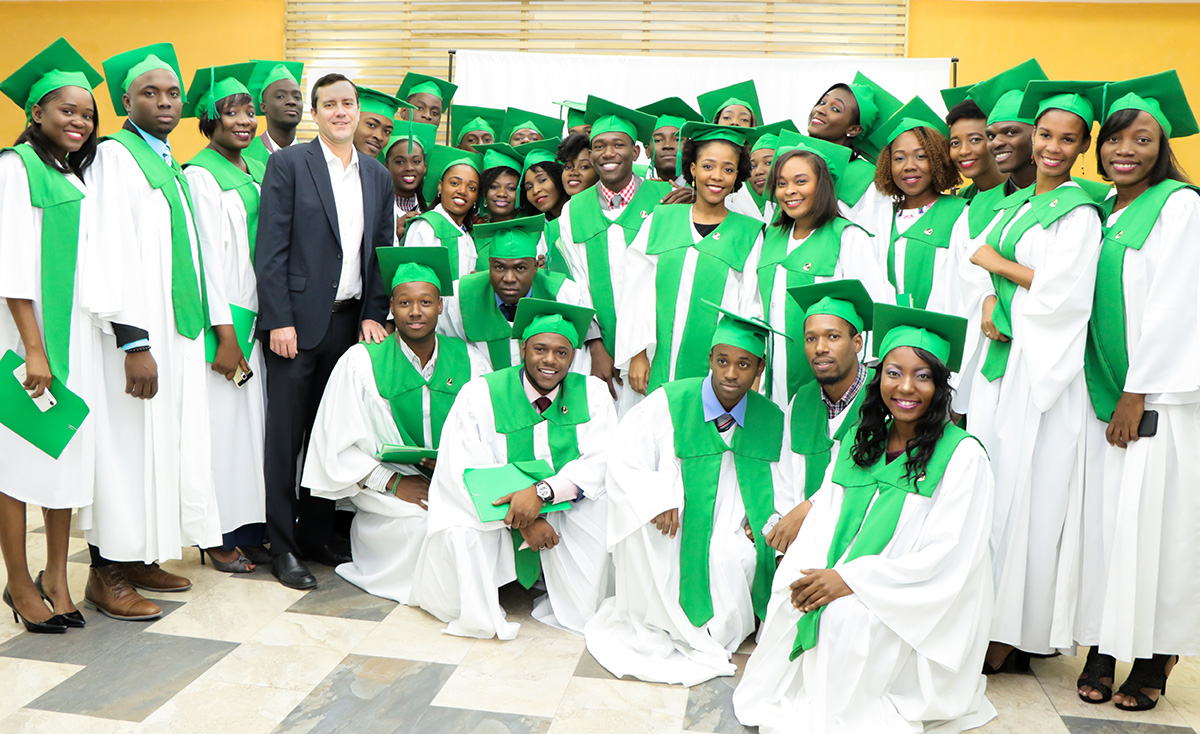
Every year, of the hundreds of students around Haiti who apply for a HELP scholarship, a small percentage are accepted into the program, which covers tuition, books and lodging, and provides a daily stipend. At the HELP headquarters in Port-au-Prince, they also get academic advising, career services and English, computers and leadership classes. In other words, they get the support they need to complete university and go on to gainful employment. But beyond finances and academics, HELP scholars are encouraged and trained to see themselves as leaders capable of making a difference in their communities. The HELP philosophy is that its scholars will use the opportunities the program grants them to help provide opportunities for others.
HELP started in the late 1990s, after a top student at a high school outside Port-au-Prince asked her American teacher, Conor Bohan, if he could give her the equivalent of $30 to register for secretarial school. He knew her dream was to be a doctor, so he paid for her to go to medical school instead. Then Bohan found sponsors for other students and gradually built an organization around the practice. Garry Délice, a fellow teacher at Bohan’s school, advised from the start and in 2006 became HELP’s country director.
Lefranc believed in HELP’s mission, “to create, through merit and needs-based scholarships, a community of young professionals and leaders who will promote a more just society in Haiti.” And as a HELP student, he thrived. He enrolled at the University of Quisqueya, one of Haiti’s best schools, and pursued a degree in agronomy and environmental studies.
HELP graduates multiply student-community links
In 2011, HELP sent Lefranc and two other scholars – Daphnée Charles and Anne-Martine Augustin – to the World Innovation Summit for Education in Qatar, where they met 27 other students from around the world.
The three returned to Haiti changed.
HELP had already set the stage for them to make a difference in their country.
From the beginning, Charles says, the HELP management and the leadership class sent a clear message: that “you are not only here for yourself, but you are also here for your community, and we expect you to be a leader.”
It was in Qatar, though, that they met students who were actively giving back. “And we were like, ‘We want to do that in Haiti!’”
Lefranc agrees. “I think the summit was really the beginning of this self-consciousness,” he says, “that we are not involved enough in what is going on in our communities.”
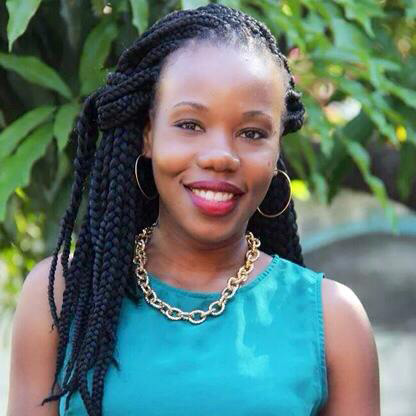
“At a very early stage in the [HELP] program, they help you understand that as a student you are not only here for yourself, but you are also here for your community, and they are expecting you to be a leader.”
Daphnée Charles Tweet
So the three created an association that would connect students with internships and volunteer opportunities in schools, local governments and nonprofit organizations in remote parts of the country. At first it was just for HELP students, but it kept expanding. Now there are 500 members, and the association, Action Toward Initiatives and Volunteering for Education in Haiti (ACTIVEH) is a W.K. Kellogg Foundation grantee.
ACTIVEH’s mission is to “mobilize students’ passion and potential as a force of change.” The way Lefranc sees it, the partnerships offer numerous wins for students and communities alike. Students get real-world training and exposure to job opportunities, community organizations get talented support, and children and parents are inspired by the sight of students coming to their communities to work. He even believes ACTIVEH is helping build a culture of volunteerism across the country.
Membership applications have come in not just from students, but from professionals as well, who want to be part of a network of engaged young people giving back to their communities.
Today Lefranc is ACTIVEH’s CEO, Charles is the Haiti-based development officer for HELP, and Augustin just completed her master’s in software engineering in the U.S., and is planning to start a tech outsourcing company in Haiti. Charles and Augustin still help out with ACTIVEH.
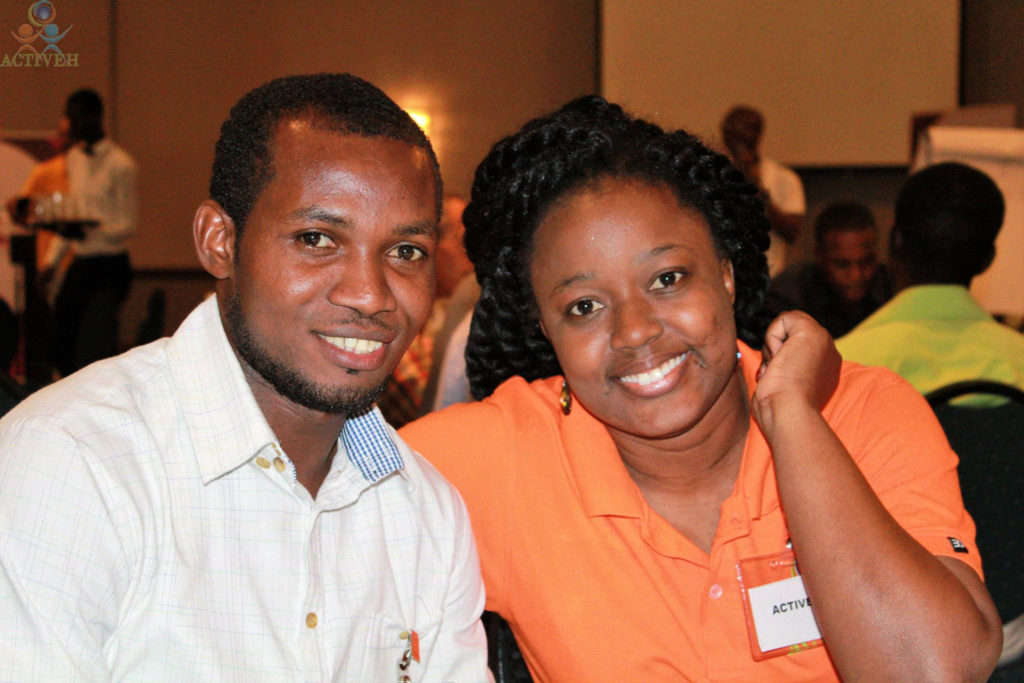
The ACTIVEH founders are among many HELP alumni superstars among more than 200 graduates. Most are working in Haiti. Their income supports family members and gives back to HELP (all grads starting with the class of 2015 are required to donate 15 percent of their wages for the first nine years of their careers to support future scholarships).
They are also helping Haiti in other ways – creating businesses and community centers, building web platforms, seeking cures for diseases – wherever their talents lie. But their ties to Haitian communities, where they’re able to see the problems and the opportunities to solve them, is generating something even more significant. They are showing how leadership can translate opportunity for one into a boon for many.
Students rise to mounting challenges
A wave of protests and riots started in Haiti in July 2018 after the government threatened to raise gasoline prices. Then a corruption scandal, combined with economic troubles including high inflation, led to almost non-stop anti-government protests and road blocks, with outbreaks of violence. Meanwhile, fuel shortages meant long gas station lines and added to challenges in transportation of people and products. Layoffs swept the country. Many schools and businesses closed.
Every morning, at the height of this crisis in 2019, HELP Country Director Garry Délice checked various sources to see if it was safe and feasible for the 42 staff members to come to work. He delivered the verdict at 6am over WhatsApp. Often the students living in HELP dorms were on their own.
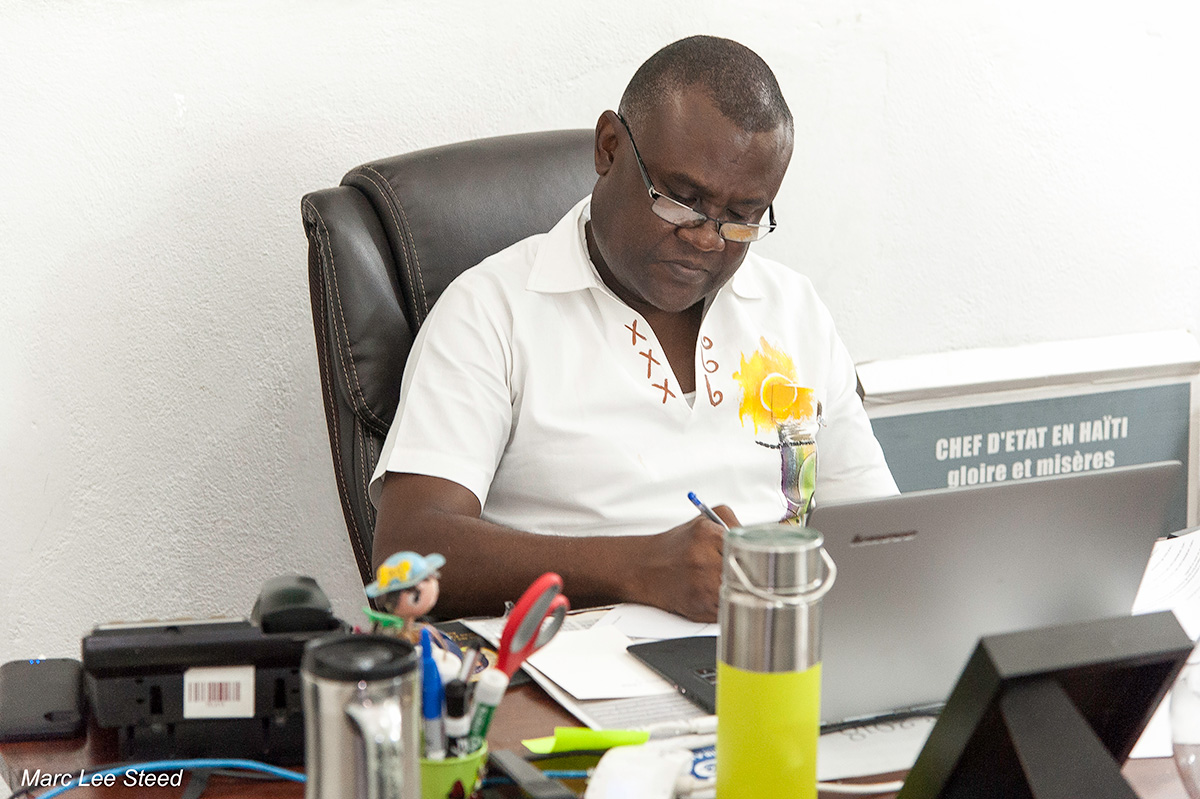
Most university classes were canceled shortly after the start of the fall semester. But with much of the country paralyzed, Délice and Executive Director Conor Bohan decided that HELP must be different. They sent a note to the students reminding them of how privileged they were, with access to electricity and water at their HELP dorms, and with their stipends… things so many of those around them were lacking at the time. “We said that gives them the opportunity to start thinking about the future,” Délice says, “how they can make a change.”
So that’s what the HELP students did.
They organized a panel and discussion with students from universities in the area to talk about the state of Haiti and what roles they might play in helping the country move beyond the crisis. Eighty people showed up, and from the event emerged a plan to bring together university student committees to speak to the government with a united voice to try to influence the path forward.
“I was already very compassionate and caring, but being involved in the HELP community helps you take a step further in making you believe you actually can change things and tackle bigger issues.”
Anne-Martine Augustin Tweet
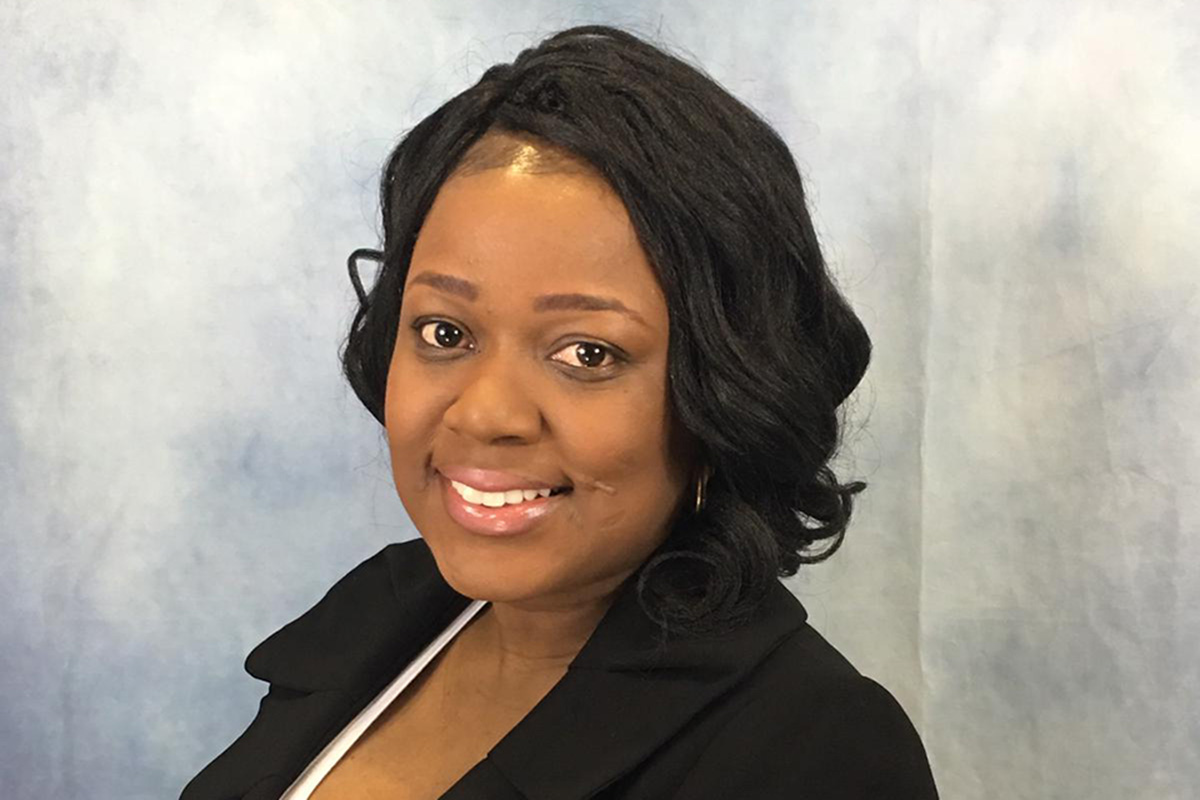
The way Lefranc sees it, “We need a critical mass of active and engaged citizens to address [this crisis]. If we as citizens don’t do what we should do to address it, no one will come to do it for us.”
At the time, Lefranc continued to go to work when his route wasn’t blocked, and ACTIVEH members who lived nearby walked to the office to use the computers. Lefranc still needed to keep raising funds to keep the operation running. He also was, and is, planning to expand ACTIVEH and to open hubs around the country.
Lefranc says he could leave Haiti if he wanted to, but he won’t. He believes that ACTIVEH, by connecting students and graduates with meaningful work in the country, can stem mass emigration. And it’s working for him, too.
“I receive a lot of messages from students saying, ‘You are my model. I want to be like you. I am very proud of you,’” Lefranc says. “This kind of testimony, this kind of feedback tells me that I am doing a good job but also that I have a responsibility to keep doing it.”
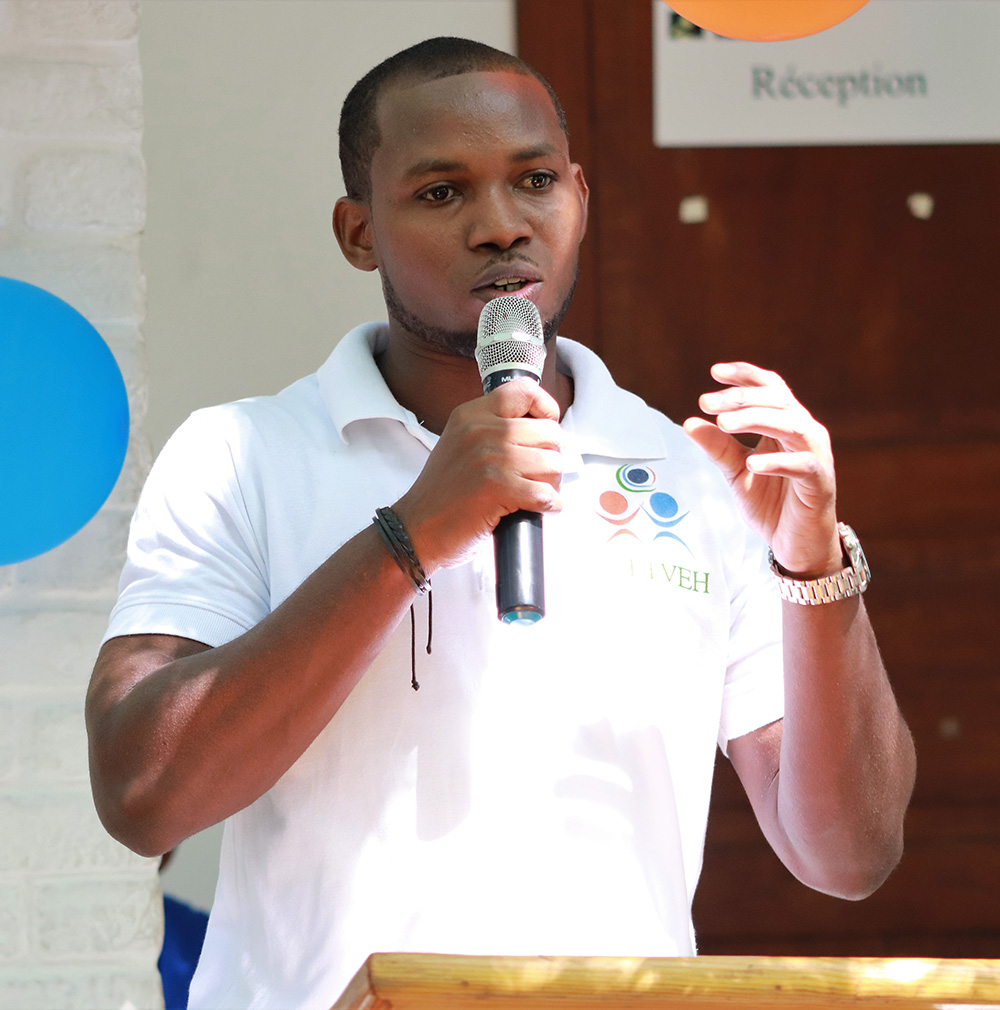
“We were thinking,.. what can we do immediately to start impacting more our communities? That’s when we came up with the idea of starting this platform, which is ACTIVEH, to connect students, to encourage them to do volunteer activities, to increase their involvement in the communities, but also to give some experiences that can be useful for them when applying for a job.”
Ronel Lefranc Tweet
HELP is expanding also. After many years of renting spaces, it has its own campus and plans to begin construction in 2020, if conditions in the country allow it. There are now 50 HELP freshmen, double the size of recent incoming classes, and HELP plans to sustain that number for the next five years, at least.
The impacts of the expansions of ACTIVEH and HELP go well beyond a few dozen additional scholarship winners and interns. They are investments in the development of Haitian communities into places where children can thrive, in a more peaceful and equitable country.



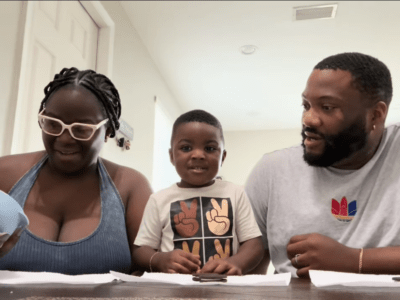
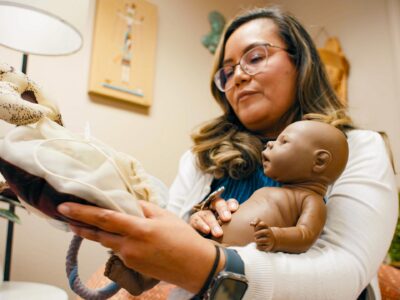

Comments